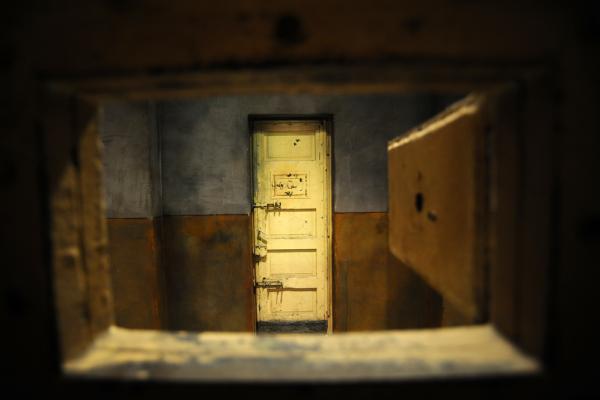The critique President Obama articulated of solitary confinement in this week’s speech to the NAACP on criminal justice is truly remarkable. Never before has this president, or any president, spoken about the mistreatment of people in U.S. prisons with such clarity and compassion.
When he spoke, the president echoed what people of faith across the country have advocated for years: Solitary confinement is an affront to our deeply held moral convictions.
Directing the attorney general to review solitary confinement is exactly what is needed to begin the process of ending this immoral practice. Faith leaders hope that with Obama’s scheduled visit to the Federal Correctional Institution El Reno in Oklahoma on July 16, he will ask to see the solitary confinement section. If the president misses a chance to see such a unit, he, and thus the nation, will develop an inaccurate picture of the true suffering and neglect that lie deep inside our U.S. prison system.
When the president named solitary confinement as one of those prison conditions "that have no place in any civilized country," he made a statement of values loud and clear — that the inherent human dignity of people does not end at the prison gates.
The moment he becomes the first U.S. president to walk through the imposing iron doors of a prison, it’s a game changer. Prisons are not where a politician goes to seek votes, or even popularity. Many of the men he will encounter are the outcasts of our society — the "least of these," in biblical terms. But the president isn’t stepping into the prison as a politician — he is passing through those gates as a world citizen and as a U.S. leader who has made the decision to care.
The timing of this visit to Oklahoma and this speech shows that the president fully intends to put pressure on Congress to follow through with sentencing reform and other criminal justice improvements being debated on Capitol Hill. But every bit as important as reforming the harsh sentences that send far too many — disproportionately, people of color — to prison is the call the president made to the country to address the conditions that those who are incarcerated endure.
A recent federal Bureau of Prisons internal audit found that 10,000 people were subject to solitary confinement in federal prisons in 2013. The total number of those in solitary confinement on any given day in all prisons and jails throughout the country is at least 80,000, prompting the president to ask, "Do we really think it makes sense to lock so many people alone in tiny cells for 23 hours a day for months, sometimes years, at a time?"
While solitary confinement is supposedly designed to temporarily separate incarcerated people for their own safety or the safety of others, far too many people spend months, years, and even decades in this abject condition, left to fend for themselves as they often develop serious psychological issues.
Or, as the president noted, "If those individuals are ultimately released, how are they going to adapt?"
So, this week’s prison visit is an opportunity for the president to expand and grow the legacy he hopes to leave as a criminal-justice reformer. He will be joining a growing consensus of opinion across the religious spectrum on ending the practice — from evangelical Christians to Catholics, Muslims to Buddhists to Jews. People of faith understand solitary confinement to be torture, and that torture is wrong.
People of all faiths have come to understand that solitary confinement violates a fundamental tenet our religious traditions hold in common: that every person is a child of God and must not be tortured for any reason or action.
I urge the president not to leave El Reno Federal Prison without seeing a solitary confinement unit and to urge the nation to get to work putting in place the reforms that will end the practice forever.
Got something to say about what you're reading? We value your feedback!

